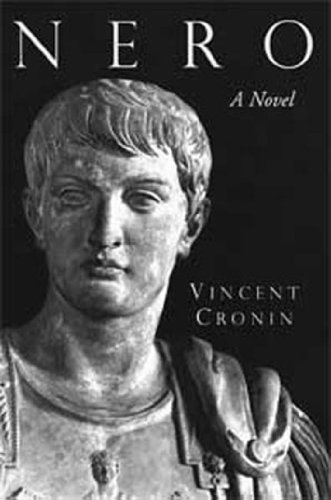Nero: A Novel
This novel is written in the form of a memoir by Mela, the younger brother of Lucius Seneca, who is invited by Agrippina, Claudius Caesar’s second wife, to teach her nine-year-old son, Domitius. This is no easy task for Mela, because the boy is lazy and uninterested, and Agrippina dictates what can and can’t be taught. Lucius falls in love and marries Paula, and her insightful comments bring the boy and tutor to a new understanding.
As their relationship develops, Lucius sees Domitius’s dysfunctional family at first hand and begins to understand Domitius’s complex nature. Claudius had little time for the boy, favouring his own son, Britannicus, and Agrippina had an unnatural preference for Domitius. Paula dissuades Lucius from antagonising Agrippina and suggests ways of gaining her approval. With this achieved, Lucius sees a transformation in the boy when he befriends him and becomes his closest adviser.
Claudius dies in suspicious circumstances, and Britannicus dies prematurely. At the age of sixteen, Domitius is crowned Emperor, and takes the name of Nero. He marries Octavia, who has been trained in household tasks by his mother, but comes into direct opposition from Agrippina who has become intrusive in his affairs and dislikes Poppaea, his mistress.
Agrippina’s fate is sealed and Nero becomes progressively more powerful, alienating Lucius and his other advisers, and eliminating rivals. He cannot live with the guilt he feels over his mother’s death, until the captive Cilician‑born Roman, Paul, tells him he has already been forgiven by Jesus. Still discontented, he blames the burning of Rome on the Christians and scandalises Lucius, the Senate and Roman people with other outrages, little realising there is a consequence for his actions.
Based on facts, this is an absorbing, didactic and informative read.










